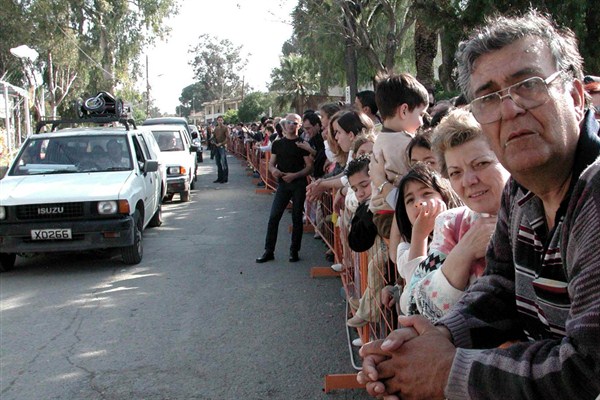For 45 years, the island of Cyprus has been divided, politically and physically, between the Turkish-Cypriot north and Greek-Cypriot south. Despite many efforts over the years to resolve it, including some near misses, the conflict has proved intractable. Security guarantees, though perceived differently for both sides, have been among the major sticking points to reuniting the island. But so, too, has restitution of property abandoned by Cypriots who were displaced from both sides of the island during the Turkish invasion and occupation of northern Cyprus in 1974.
That sense of loss has long featured prominently in Cypriots’ experience of the conflict, exacerbated in the north by international isolation. But the generation that lived through the displacement is now aging and the demography of northern Cyprus changing, with uncertain implications.
In this week’s interview episode of the podcast, Jonathan Gorvett talks with WPR’s senior editor, Robbie Corey-Boulet, about the history of the Cyprus conflict, what’s changing, and what that means for efforts to reunite Cyprus.
If you like what you hear on Trend Lines and what you’ve read on WPR, you can sign up for our free newsletter to get our uncompromising analysis delivered straight to your inbox. The newsletter offers a free preview article every day of the week, plus three more complimentary articles in our weekly roundup every Friday. Sign up here. Then subscribe.
Listen:
Download: MP3
Subscribe: iTunes | RSS | Spotify
Relevant Articles on WPR:
As Divisions Harden, Is Time Running Out to Reunite Cyprus?
What Anastasiades’ Re-Election Means for the Prospects of Cyprus Reunification
Trend Lines is produced and edited by Peter Dörrie, a freelance journalist and analyst focusing on security and resource politics in Africa. You can follow him on Twitter at @peterdoerrie.
To send feedback or questions, email us at podcast@worldpoliticsreview.com.

